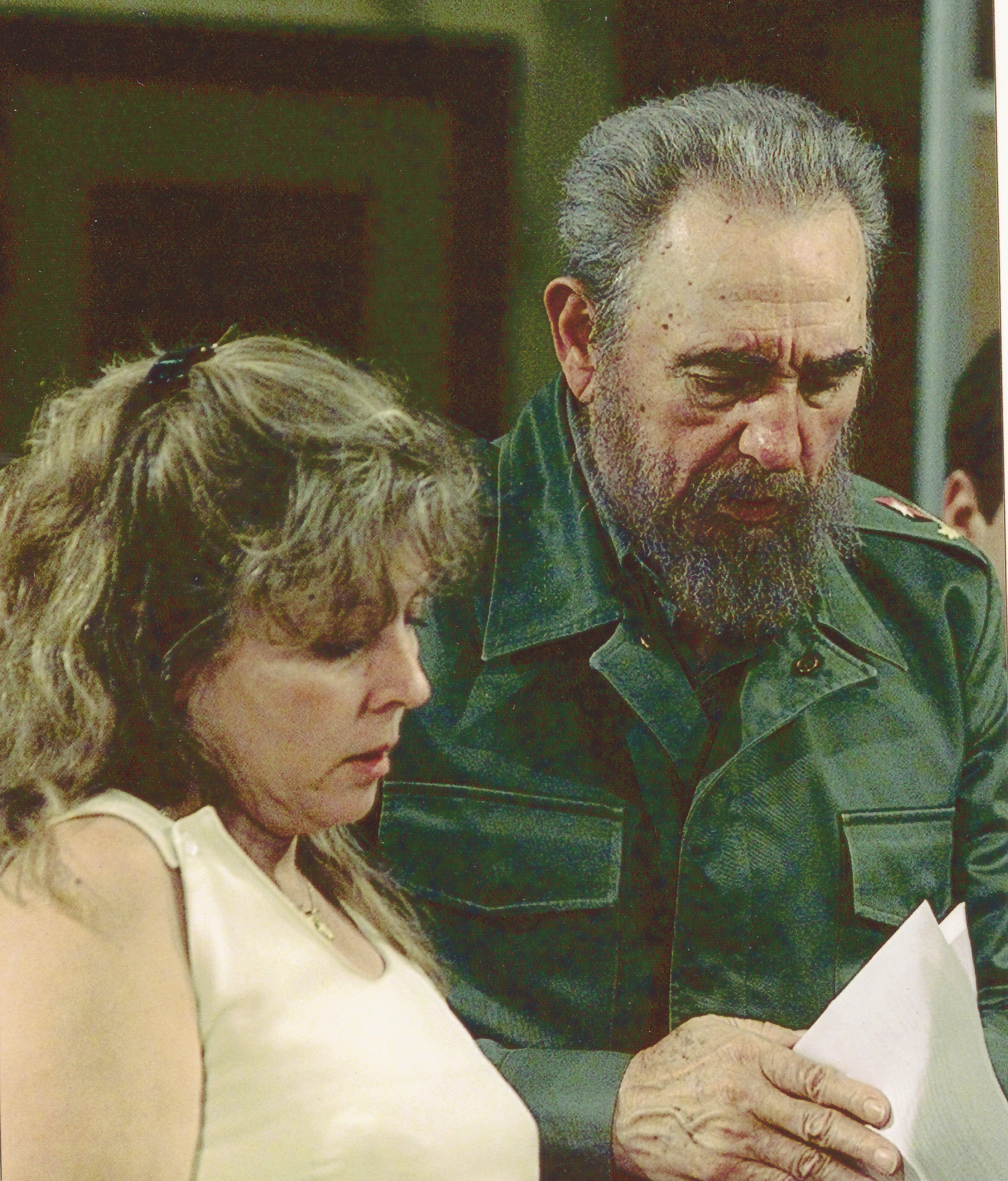
Then-Cuban President Fidel Castro chats with Anita Snow in September 1999. Photo: Adalberto Roque, courtesy of Anita Snow
Anita Snow is a veteran international journalist who specializes in the Americas. She currently is based in Mexico City as an editor on the AP regional desk for Latin America and the Caribbean. Previously, she was a UN correspondent for the AP and a 2010 Nieman fellow at Harvard University. She reopened the AP’s Havana office in 1999 and went on to serve as bureau chief for a decade.
Hometown: Born in Norfolk, Virginia, but grew up mostly in Southern California.
Education: BA in Communications/Journalism from California State University, Fullerton; MA in Latin American and Caribbean Studies from New York University; MFA in Creative
Nonfiction writing from Goucher College in Baltimore.
Languages: Native-level Spanish.
First job in journalism: Police reporter at The Orange County Register in Santa Ana, California.
Countries reported from: United States, Mexico, Nicaragua, Guatemala, Panama, Colombia, Peru, Cuba, Haiti and the Dominican Republic.
When did you join the OPC? January 2000.
How did you first become interested in Latin America and the Caribbean? When I was working for The Orange County Register, I began covering the Mexican and Salvadoran immigrant communities in Southern California and I soon wanted to learn about the countries they had come from south of the border.
How do you feel about the ongoing changes in US relations with Cuba? I find the changes fascinating, and saw that Cuba was already starting to change when I visited
the island on a work trip in early 2015. But truly big changes probably won’t occur unless the US Congress votes to eliminate the longstanding embargo against the island.
Major challenge as a journalist: Reopening AP’s Havana bureau after the new agency’s nearly 30-year absence.
Best journalism advice received: “Just keep fighting.” – Eloy O. Aguilar, the now late former AP bureau chief for Mexico and Central America, when I felt like giving up while trying to set up the Havana bureau.
Worst experience as a journalist: Going to interview the parents of a teenage girl who had been murdered, only to discover after talking with them briefly that the police had not informed them of their daughter’s death. The parents later wrote me to say they blamed authorities for not contacting them and we remained in touch for several years.
When traveling, I like to always: Bring a swimsuit in case the hotel has a pool and some good walking shoes in case there’s time to explore.
Hardest story I’ve done: Interviewing parents about their children who were killed in the 1994 Zapatista rebel uprising in the southern Mexican state of Chiapas.
Journalism heroes: Bob Woodward and Carl Bernstein of The Washington Post, whose stories about the Watergate investigation inspired me to become a reporter.
Advice for journalists who want to work overseas: These days, you need to learn how to do everything: Write well, take photos and shoot video.
Dream job: Traveling around Latin America and the Caribbean, or even the world, doing deep reporting and crafting long, interesting stories about subjects no one else has touched.
Favorite quote: “You own everything that happened to you. Tell your stories. If people wanted you to write warmly about them, they should have behaved better.” – Anne Lamont.
Place I’m most eager to visit: Turkey.
Most over-the-top assignment: A story idea I came up with to spend a month living on a diet similar to the Cuban government food ration and writing about it.
Most common mistake I’ve seen: Using the nonexistent word “alright” rather than “all right.”
Country I most want to return to: Peru for the food and culture, Cuba for the people.
Twitter handle: @asnowreports
Want to add to the OPC’s collection of Q&As with members? Please contact patricia@opcofamerica.org.
